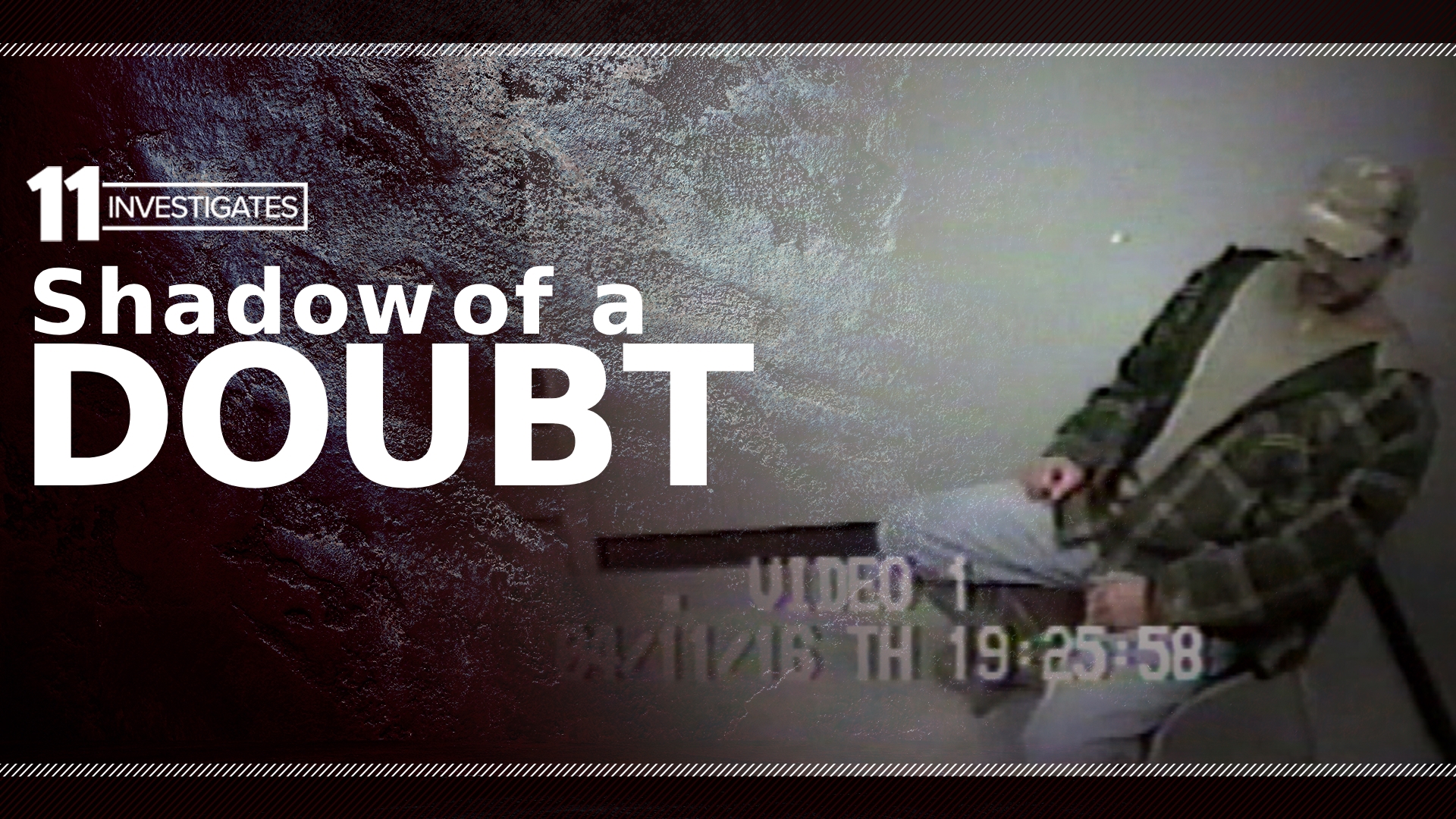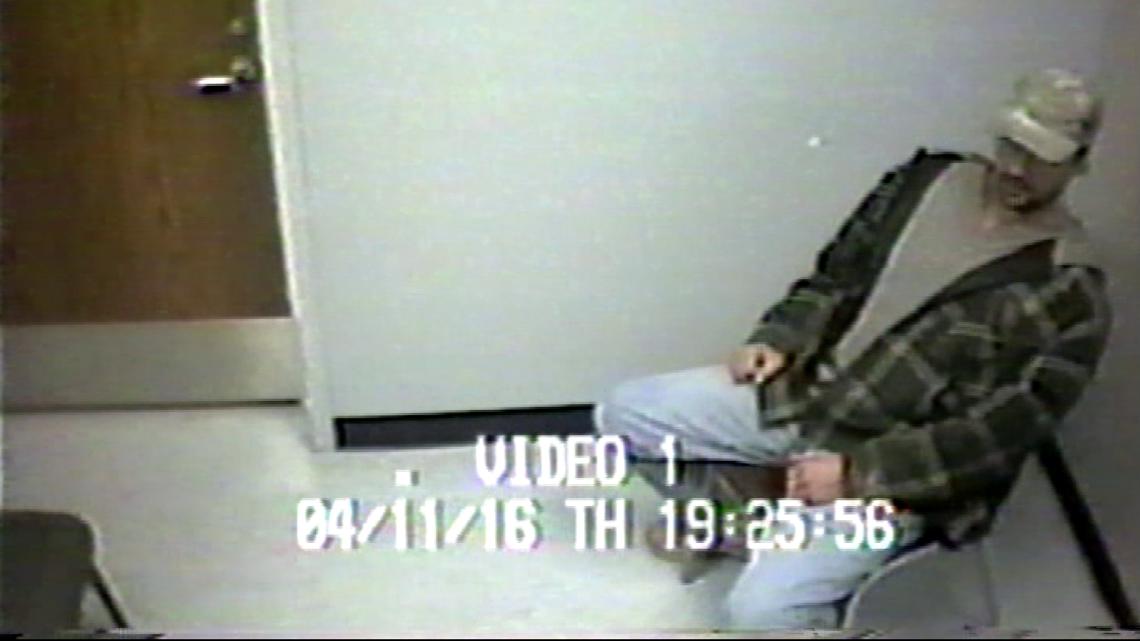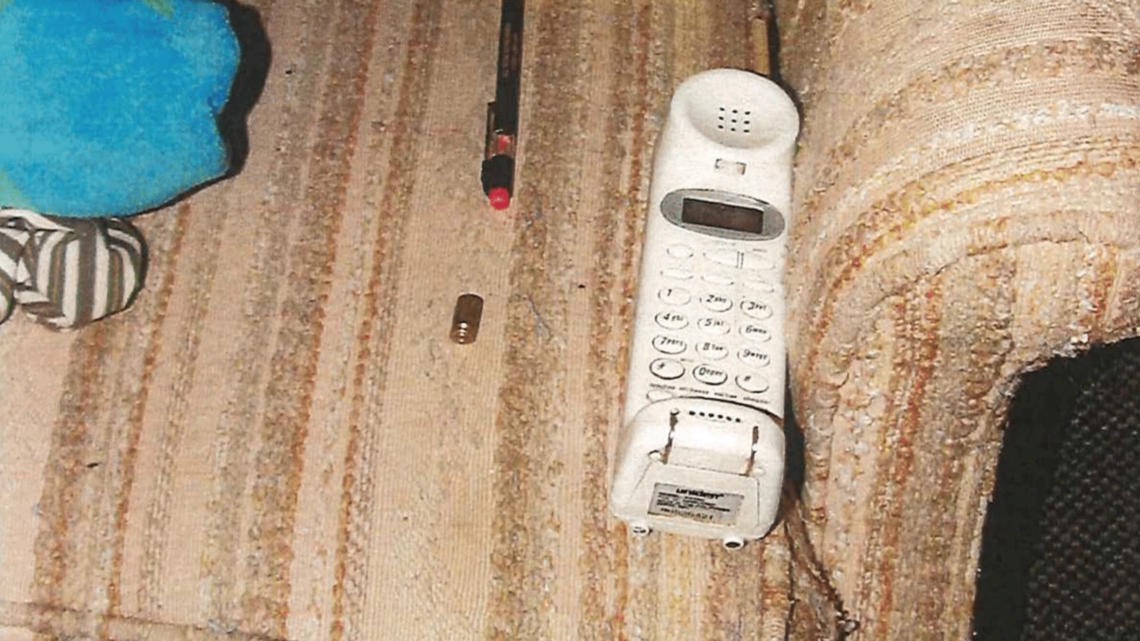A police investigation, a jury's verdict and an attorney's 'biggest failure' | 11 Investigates: Shadow of a doubt
A series of phone calls and interviews convinced detectives and a jury that Eric Babos killed his longtime friend over $150.

This is the second part of a four-part investigation into the murder of John Riebe on Dec. 15, 2004. This portion of the series focuses on the Sylvania Township investigation as they zero in on Eric Babos as the suspect. For nearly 20 years, Babos has contended that he was wrongfully convicted.
RELATED: 11 Investigates: Shadow of a doubt
A detective's question, the daughters' answer And a murder suspect
Hours after John Riebe was gunned down inside his Talmadge Road home On Dec. 15, 2004, Eric Babos received a call from his father, Stephen.
“A couple buddies had come over and we were playing cards and drinking a couple beers. And then my dad called me about 11 o'clock, and he said to turn on the TV," Eric Babos said. "I turned it on and there was John’s house."
Babos had known Riebe for years and worked with him most days as an HVAC contractor. When he saw the news report, Babos’ first thought was about a party at Riebe’s house the previous weekend. One of Riebe’s drug dealers, JR, showed up and pulled out a gun, according to Babos’ buddy, John Klawitter.
“I was like, ‘Wow, I wonder if he's coming after me.’ I went to my cousin's house, and John (Klawitter) was there," Babos said. "We talked about it and we all sort of just said, ‘Well, maybe we should go tell them what we know.’ And that's how it all got started.”
What Babos didn’t know was that shortly after the murder, Detective Todd Slaman pulled Riebe’s daughters aside and he asked them a question: Who do you think could have killed your father?
Jamie and Nicole mentioned two names: JR and Eric Babos.
Babos also didn’t know that Detective Sgt. Robert Colwell was standing beside Jamie Riebe when she answered a call from Babos an hour after her father was killed. According to Jamie, Babos angrily said John Riebe owed him $150 and he wanted that money.
When Babos, Klawitter and Eric’s nephew, Jason Rahman, showed up at the crime scene around midnight, they had not previously met the detectives.
But those detectives were certainly familiar with the name of Eric Babos.
Interviewed by police Eric Babos tells his story
After Slaman and Colwell were introduced to Babos, Klawitter and Rahman, they suggested they go to the police station to talk.
Sylvania Township police provided audio of the interviews with Klawitter and Babos. There is a complete transcript of the interview with Babos. Both men focused their story on the party at Riebe’s. There were a handful of people there, including Babos and Klawitter. There was also a prostitute and at some point, a serious-looking, large man came into the house and approached Riebe.
“He was big, probably 6-foot-2," Klawitter told police. "I bet he was about 260 (pounds) and John called him 'JR.'"
Neither the police, Babos nor Klawitter knew JR’s last name, which caused issues early in the investigation.
"JR" was a street name for Valynn Rodgers, one of Riebe’s crack dealers and a man with a lengthy police record. A review of court records shows he has faced 140 charges in Lucas County, dating back to the 1990s. He has several other charges in nearby counties.
Klawitter told police JR pulled out a gun. Babos told them he did not see a gun, but that he had a verbal confrontation with JR when he accused the men of being police.
But detectives had little interest in hearing about the party from Babos. They immediately began questioning him about calls he made to Riebe earlier that day.
Phone records show Babos called Riebe’s home at 6:51 a.m. and 8:31 a.m. in the morning, then again at 12:07 p.m. and 2:21 p.m. in the afternoon. Finally, he called at 3:58 p.m., when he talked to Jamie.
In a recent interview with 11 Investigates, Babos said the men had material for a job and he called to see if they would be doing it that morning. But he also wanted to know if Riebe was going to pick up a check from a previous job with A-1 Heating & Improvement Co. Eric would get $150 of the $500 check.
“I could tell he sounded a little funny. I knew he was high. I mean, I'll just say it. He was high," Babos told 11 Investigates. "But he told me to call him back in an hour. So I called him back, and he said, 'we're not working today.' So I was like, okay, whatever. So that's when I called my brother and decided to do some stuff for him."
He told police that he then had his father drop him off at a home his brother owned on Westacre Lane. He was remodeling the home and his brother paid him for his work.
In the interview, police asked about the 2:21 p.m. call to Riebe.
“I knew he was stalling about (picking up the check). So around 2 or something, I called him back, and he said, ‘Eric, I need some money,’” the transcript of the police interview reads. “And that’s the last time I talked to him.”
The detectives and Babos seemed confused about why Riebe would say he needed money when he had a check waiting for him at A-1 Heating.
Riebe was killed about 3:15 p.m.
During the interview, the detectives tested Babos’ hands for gunshot residue, asked him to take a polygraph, repeatedly accused him of being evasive and even lied to him about talking to several people who said he was mad at Riebe.


Before he left, Babos told police: “I’m here because I wanted to tell my story. I thought it would do some good. I didn’t think I was going to get harassed like this.”
Right as the police wrapped up their interview with Babos in the early morning hours, officers knocked on the door of his brother’s house. After he climbed out of bed, Greg Babos answered the door and an officer asked to see his gun.
“I went in and got it out of my drawer, and they looked at it, smelled it and said, OK, this isn’t it,” Greg Babos told 11 Investigates.
As they were leaving, he asked what the visit was all about.
“He said something like, ‘Your brother was involved in an incident over by Franklin Park Mall,’ which is sort of where John lived," Greg Babos said.
They had no physical evidence or witnesses, but police believed they had their man.
The A-1 calls Police make an arrest
The day after the murder, the police got a tip about a series of calls the previous day to A-1 Heating.
During interviews, office manager Daniel Boyle and owner Bob Pfeiffer told detectives about calls made at 3:03 p.m., 3:06 p.m., 3:08 p.m., 3:13 p.m. and 4:07 p.m. in the afternoon.
During court testimony, Boyle said that Riebe called him at 3:03 p.m. to ask if his check was ready for pickup. He said the next call involved Riebe and a man who identified himself as Eric, John’s helper, passing the phone back and forth. He said Eric demanded his money.
Pfeiffer answered the next two calls, initially putting the men on hold in the first call. At 3:13 p.m., he testified that Eric demanded his money.
Those first phone calls were made from Riebe’s landline to an A-1 line that was used for calls from contractors.


At 4:07 p.m., phone records indicate that Babos called the published A-1 line from his personal cell phone. Pfeiffer testified that the man who made the final call from Riebe’s phone and the man who called from Babos’ cell phone were definitely the same person.
Later that day, Babos was arrested for outstanding misdemeanor warrants. While in custody, police tore apart his home, looking for the murder weapon or any sign that he was involved in Riebe’s killing.
They found nothing.
Clues point to Babos Attorney describes jury's decision as his biggest failure
But there were additional clues that were leading police to Babos.
A week or two after the murder, detectives talked to Kathryn Boswell, the mother of Babos’ son. She recounted to detectives a conversation she had with Babos the weekend after the murder. In court testimony, Colwell said Boswell asked Babos why police were looking at him as a suspect. According to Colwell, Babos replied that it was because he was the last person to see Riebe alive.
Boswell told 11 Investigates that they twisted the conversation.
“They took my comment out of context. I hung up on them a couple of times because I thought I was being pranked,” she said. “I did ask him why they were coming at him, and he said because I work with him. I just took it to mean that he was a suspect because they worked together.”
Detectives got another piece of evidence to use against Babos when a second gunshot residue test determined that he had residue on the left sleeve of the flannel shirt he was wearing the day of the murder. Police determined what he had been wearing by reviewing a bank photo taken shortly after Greg picked him up. There was then surveillance video from a home improvement store where the men went shopping for a Christmas tree.
When detectives asked Babos if he had fired a gun while wearing that shirt, he replied that he had never fired a gun at any time.
Forensic protocol at the time called for samples to be collected within two hours of the gun being fired. In Babos’ case, it was taken from him for testing two weeks after the murder.
Later in 2005, the FBI discontinued testing for gunshot residue, saying chances for contamination – in the lab or during collection - were too great, rendering tests highly unreliable.
On Dec. 29, Babos was arrested for the murder of John Riebe. On Aug. 5, a jury convicted him, returning their verdict at about 3 a.m. in the morning.
His attorney, Jerry Phillips, still hasn’t gotten over the decision.
“I believe Eric Babos is innocent. And I think about him all the time," Phillips said. "It's sad to say, but it’s probably the biggest failure of my criminal practice.”
11 INVESTIGATES: SHADOW OF A DOUBT

